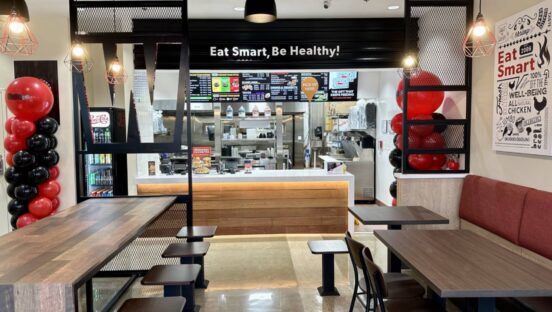It’s not uncommon for a growing brand to launch a new franchise program, but it is rare for an existing brand to relaunch franchising after indefinitely suspending it. But Dallas-based Pizza Patrón has always prided itself on treading the road less taken.
In January 2014, the chain known for its “Pizza Por Pesos” program halted its franchising. Ironically, the announcement was first made the previous year during its National Franchise Convention when the brand was rounding the decade mark for its franchise program.
Now, just two years after suspending the program, CEO and founder Antonio Swad says Pizza Patrón will start it up again at the beginning of February.
“We had some work to do. I’d been back in the presidency seat for a couple of years, and I didn’t like the way it was looking,” Swad says, adding that his corporate team was being worn down by noncompliant franchisees. “That was part of the genesis for the decision to suspend franchising and give us an opportunity to clean it up. And we did it.”
Indeed, Pizza Patrón has seen great success since beginning its turnaround efforts. Comparable sales for the past year are estimated to more than 5 percent higher than 2014, which had hitherto been the best year for same-store sales. In September, the company also reported that 46 percent of its stores set all-time sales records. Swad says the company’s total revenue and average-unit volume are both higher than they have ever been.
The brand also completed renovations (originally started in 2013) in 81 of its 95 units last fall. Around that same time, Pizza Patrón built a new freestanding store from the ground up in Dallas. Although Pizza Patrón has other standalone units, this one—which is a “quasi” corporate store owned by Swad—was was the first to be built from scratch, he says.
During the suspension period the company did not take on any new franchisees, but it did move forward with existing operators who had proven their mettle.
“At one point we considered just opening company-owned stores for our growth, but we sat down and we analyzed our competency. We decided decided that we would continue to grow with existing franchisees,” Swad says. Although it was difficult to close units when the company was receiving royalties from them on a weekly basis, Swad says that keeping them on would be akin to an unhappy couple having a child in hopes of saving a marriage. “You’ll know when your company’s sick. Franchising will not make an unhealthy company healthy.”
Still, Pizza Patrón resolved to part amicably with its incompatible operators, even releasing them from the non-compete clause and helping them continue as an independent concept, if that was their desire.
Swad is reluctant to make an estimate of how many new franchisee stores will open this year. The brand wants to be selective both in whom it chooses and where it chooses to open new stores. He adds that the No. 1 goal for real estate is to fill in existing markets.
“[Franchising] is a fascinating business model, and it’s inherently not perfect. You generally try to take folks who aren’t in the industry and make them competent and even good foodservice operators,” Swad says. “It’s not for everyone. It’s for me, and it’s for us here, but not for everyone.”
By Nicole Duncan






